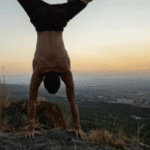Nordic Cycle for Mental Health
Based on common understanding and related concepts, there isn’t a widely recognized, formally defined therapeutic model or program called the “Nordic Cycle for Mental Health.” It’s not a standard term in psychology or psychiatry like “Cognitive Behavioral Therapy” or “Mindfulness-Based Stress Reduction.”
However, the phrase likely refers to an integration of lifestyle principles, cultural values, and practices common in Nordic countries (Denmark, Finland, Iceland, Norway, Sweden) that are known to contribute positively to mental well-being and overall quality of life. These countries often rank highly in global happiness reports, and certain aspects of their lifestyle are frequently cited as contributing factors.
Here’s a detailed breakdown of the elements that might constitute such a conceptual “Nordic Cycle for Mental Health”:
Connection with Nature (Friluftsliv – “Free Air Life”):
Concept: A strong cultural emphasis, particularly in Norway and Sweden, on spending time outdoors in nature, regardless of the season or weather. This includes hiking, skiing, camping, foraging, fishing, or simply walking in a forest or by the sea.
Mental Health Link: Being in nature is strongly associated with reduced stress, anxiety, and depression. It promotes physical activity, mindfulness, and a sense of awe and perspective. Regular exposure to natural light also helps regulate circadian rhythms, improving sleep and mood.
Coziness, Comfort, and Togetherness (Hygge – Danish concept):
Concept: Creating a warm, cozy, comfortable atmosphere and enjoying the simple pleasures of life with oneself or loved ones. This often involves soft lighting (candles), warm drinks, comfortable blankets, good food, and relaxed social interaction, free from stress or pretense.
Mental Health Link: Hygge promotes feelings of safety, security, contentment, and belonging. It encourages slowing down, being present, and appreciating small moments, counteracting stress and anxiety. It emphasizes social connection in a comfortable setting.
Balance and Moderation (Lagom – Swedish concept):
Concept: Meaning “just the right amount,” “not too little, not too much,” or “in moderation.” It emphasizes balance, fairness, and appropriateness in various aspects of life – work, consumption, social interaction, design. It’s about finding contentment without excess or deprivation.
Mental Health Link: Lagom can reduce stress associated with striving for perfection or excess. It encourages a sustainable pace of life, good work-life balance, and mindful consumption, leading to greater contentment and less pressure.
Resilience and Perseverance (Sisu – Finnish concept):
Concept: An extraordinary determination, tenacity of purpose, grit, bravery, and resilience in the face of adversity. It’s an inner strength and a mindset of not giving up, even when things are difficult.
Mental Health Link: Sisu represents a psychological resource for coping with challenges. Cultivating this mindset can improve self-efficacy, reduce feelings of helplessness, and help individuals navigate difficult life events more effectively.
Social Connection and Ritual Pauses (Fika – Swedish concept):
Concept: More than just a coffee break, Fika is a dedicated moment (often twice a day) to pause, socialize with colleagues, friends, or family, usually accompanied by coffee or tea and pastries or sandwiches.
Mental Health Link: Fika institutionalizes social connection and mindful pauses during the workday or daily routine. It combats loneliness, builds relationships, improves communication, and provides mental breaks, reducing stress and improving overall mood. Strong social ties are a key protective factor for mental health.
Emphasis on Physical Activity:
Concept: Physical activity is often integrated into daily life, partly through friluftsliv and commuting (cycling, walking), rather than being solely confined to gyms.
Mental Health Link: Regular exercise is well-established as a powerful tool for improving mood, reducing symptoms of depression and anxiety, and boosting cognitive function.
Work-Life Balance and Social Support:
Concept: Nordic countries generally have strong social safety nets and cultural/political support for reasonable working hours, generous parental leave, and vacation time.
Mental Health Link: These societal structures reduce chronic stress related to job insecurity, financial worries, and balancing work with family life, contributing significantly to overall well-being.
Why “Cycle”?
The term “cycle” might imply:
Regularity: Integrating these practices into a daily, weekly, or seasonal rhythm.
Seasonality: Adapting practices to the distinct Nordic seasons (e.g., embracing indoor hygge more in dark winters, maximizing outdoor friluftsliv during long summer days).
Interconnectedness: These elements often reinforce each other (e.g., enjoying friluftsliv with friends combines nature, activity, and social connection).
In Conclusion:
While not a formal methodology, the “Nordic Cycle for Mental Health” likely refers to a holistic approach inspired by Nordic lifestyles. It emphasizes regular engagement with nature, fostering coziness and connection, maintaining balance, building resilience, prioritizing social pauses, staying physically active, and benefiting from supportive social structures. These combined elements create an environment and lifestyle conducive to lower stress, greater contentment, and robust mental well-being. It serves as global inspiration for incorporating healthier, more balanced practices into daily life.

Nordic Cycle for Mental Health
Route
Calisthenics Gym Houston Functional Bodyweight Training
Secondary phone: (346) 483-3195
Email: info@calisthenicsclubhouston.com
URL: https://calisthenicsclubhouston.com/
Monday 6:00 AM - 7:00 PM Tuesday 6:00 AM - 7:00 PM Wednesday 6:00 AM - 7:00 PM Open now Thursday 6:00 AM - 7:00 PM Friday 12:00 PM - 6:30 PM Saturday 9:45 AM - 12:00 PM Sunday 3:00 PM - 5:00 PM




